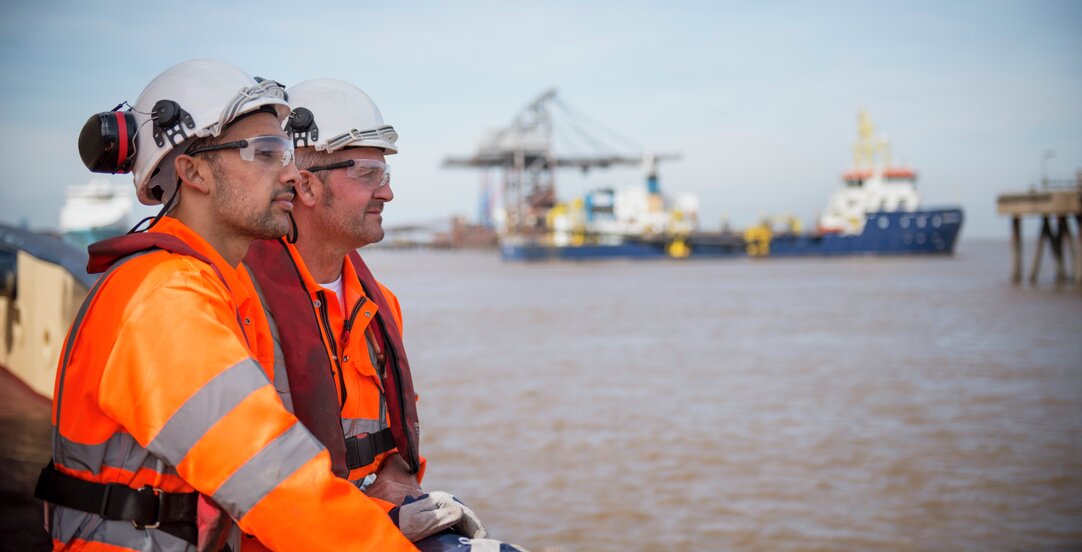EU Emissions Trading System applies for shipping as from 1 January 2024

The EU Emissions Trading System (EU ETS) has been reformed to include maritime emissions as from 1 January 2024.
Lesetid 5 minutter
Concluding a long process to expand the EU ETS to cover shipping, the EU Council formally ratified the new amendments to the EU ETS on 25 April 2023. The EU ETS is an emission trading scheme that conditions the emission of greenhouse gases on the timely submittal of emission allowances. Allowances will be auctioned off by Member States, and can subsequently be traded between shipowners and other industry stakeholders in need of allowances.
With a final text now being published, relevant stakeholders should consider the directive's impacts prior to the directive's application to shipping as from 1 January 2024. In the following, we will review some of the main provisions.
Main provisions
The main duty imposed by the EU ETS is that shipping companies have to acquire and submit allowances for their CO2-emissions. The duty to submit allowances applies to all emissions on voyages between EU and EEA ports and within EU/EEA ports, as well as 50 % of the emissions from voyages between the EU/EEA and third countries. The directive is flag-neutral, meaning that it will apply to all vessels sailing to or from EU/EEA ports, regardless of where they are flagged or where the shipowner is incorporated.
The directive's application to shipping will follow a staggered approach. The shipping company has to submit allowances for 40 % of its emissions for 2024, rising to 70 % for 2025. The directive will apply on a 100 % basis from 2026. From 2026, the shipping company will also have to submit allowances for emissions of methane and nitrous oxide, in addition to CO2.
Non-compliance will be subject to sanctions. EU/EEA states shall implement enforcement measures which shall be dissuasive, proportionate and effective. Further, if a shipping company has failed to comply for two or more consecutive reporting periods, the EU may issue an expulsion order, covering the entirety of the shipping company's fleet. The expulsion order applies to all EU/EEA ports, except for the vessel's flag state. If one of the shipping company's vessels enters a port of its flag state, it will be detained until the shipping company fulfils its obligations to surrender allowances. Prior to the issuance of an expulsion order or a decision to detain, the shipping company shall be given the opportunity to submit its observations.
The EU ETS will at the outset only apply to vessels above 5000 GT. Offshore vessels above 5000 GT will be included from 2027; however, shipowners are already from 2025 obliged to monitor, report and verify the CO2-emissions of these vessels under the EU's MRV Regulation. By 2026, the EU will review whether the scope of the EU ETS should be expanded to also include emissions from general cargo vessels and offshore vessels between 400 GT and 5000 GT.
Finally, the directive will be "reviewed" if the IMO adopts a similar global marked-based measure. If the IMO does not implement such a measure by 2028, or the measure is not in line with the objectives of the Paris Agreement and comparable to the level from the EU ETS, the EU Commission shall review whether shipping companies should be required to submit allowances for more than 50 % of the emissions from voyages between the EU/EEA and third countries. IMO's approach to reducing greenhouse gas emissions will likely become clearer once IMO's next "Greenhouse Gas Strategy" is set out in the next meeting of the Marine Environment Protection Committee, the sub-group tasked with adopting greenhouse gas reducing measures within the IMO, which will be held in early June 2023.
The responsible entity and commercial considerations
The duty to submit allowances is placed on the "shipping company". This is defined as the shipowner or any other entity, such as the manager or bareboat charterer, that has assumed the responsibility for the operation of the ship from the shipowner and thereby agreed to take over the duties and responsibilities imposed by the international safety management code for the safe operation of ships and pollution prevention (the ISM Code). This means that the ship's management company likely will be considered the responsible party to comply with the regulation, as the DOC-holder under the ISM Code.
The EU recognizes that the entity defined as the "shipping company" will not always be the entity which has the largest impact on the vessel's level of emissions. In line with the "polluter pays"-principle, the Directive therefore stipulates that EU-states shall take the necessary measures to ensure that the shipping company is entitled to reimbursement for the costs arising from the surrender of allowances from the entity which is ultimately responsible for the purchase of fuel, the "operation of the ship", or both. "Operation of the ship" is, for the purposes of the article, defined as "determining the cargo carried or the route and speed of the ship". The Directive makes clear that the "shipping company" nevertheless remains responsible for surrendering allowances.
Shipowners or ship managers that wish to hold other entities responsible for obtaining and submitting allowances, penalties and other losses which may occur in connection with the EU ETS will therefore need to ensure that this is clearly specified in their contracts. In this regard, BIMCO's "Emission Trading Scheme Allowances Clause for Time Charter Parties 2022" will provide a good starting point for shipowners. BIMCO is also currently revising its SHIPMAN form, which will include a dedicated ETS Allowance Clause.
Looking ahead
The EU ETS will apply to shipping from 1 January 2024. Shipowners, charterers, ship managers and other stakeholders therefore need to act swiftly in order to consider how the new legislation will impact their business, ensure compliance, and certify that contractual relationships adequately account for any increased costs or risks.

